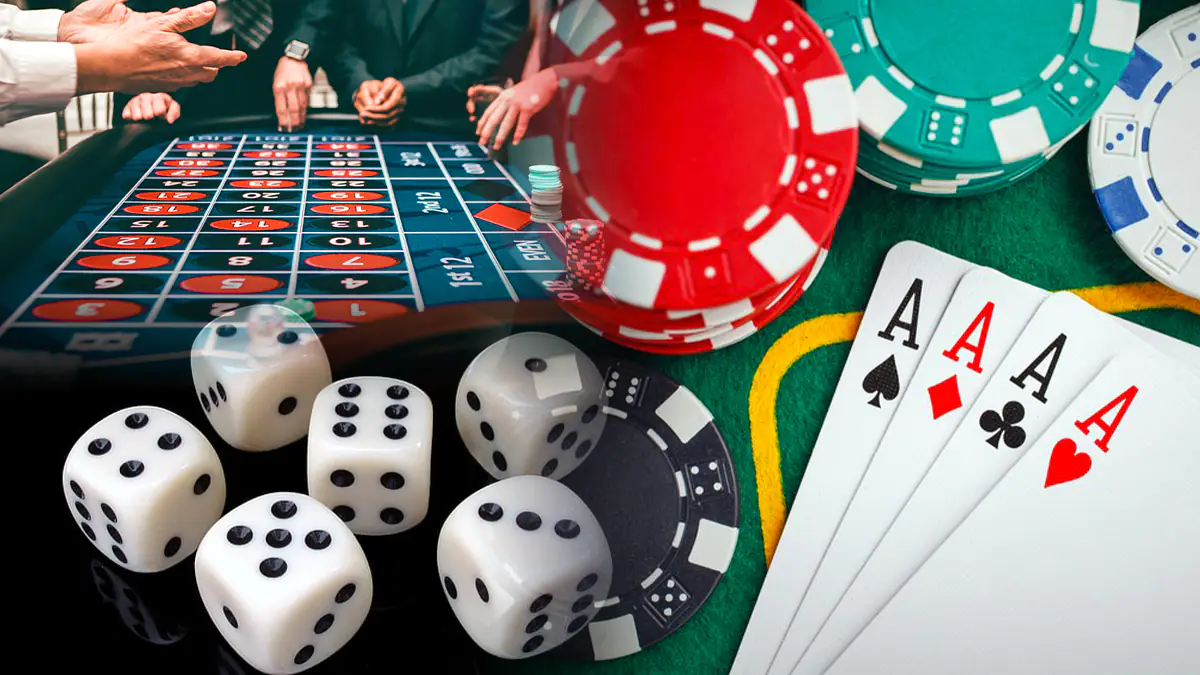
Difference Between Responsible and Irresponsible Gambling
You might have heard statements like “Moderation is key.” yes, they may sound a bit cheesy, but they nicely summarize the difference between doing something responsibly and irresponsibly. It’s the same with irresponsible gambling. It may start slowly; perhaps you’ve been able to gamble responsibly for years. But things can change, and before you notice, you can end up gambling in a very irresponsible way, which in turn increases your chances of developing a gambling disorder. This article will explain how you can differentiate between responsible and irresponsible gambling, helping you identify early signs of irresponsible gambling.
Main signs of irresponsible gambling
We already discussed the consequences of irresponsible gambling as well as symptoms of gambling addiction in separate articles, so here we’ll just quickly recapitulate the most important signs of irresponsible gambling:
- Your gambling becomes more frequent, and you invest more and more money in gambling.
- You disregard essential aspects of life due to gambling (e.g. family and friends).
- You end up in a precarious financial situation.
- You’re increasingly having to lie to others about your gambling habit (you have to conceal where you’re spending your money).
Let’s now focus on the most essential characteristics of responsible gambling:
Characteristics of Responsible Gambling
1. You can stop playing when you realize that you’re losing money.
Gambling is a sort of entertainment, a pastime. Thus, it should be consumed in such a way as an occasional entertainment that has to be ceased once drawbacks become bigger than pros, which is usually when you realize you’re going to lose some serious money if you continue playing. If you’re taking money that should be spent on things such as food, rent, family, and other important obligations, and you invest it in gambling, this is a sign that you have a gambling problem. On the other hand, if you can take a sum of money and put it aside for it to be spent on entertainment (such as gambling) and you’re not tempted to spend more once your initial sum is spent, you’re a responsible gambler.
Pathological gamblers find it hard to stop playing once they start, and they often spend hours, or even days, in casinos, spending their last dime and having to take on debt.
2. You don’t gamble frequently.
Determining a strict cutoff value of gambling frequency above which you enter into a red zone is somewhat challenging. Some people may not gamble that frequently, but when they do gamble, they start serious sprees, ultimately ending up with no money. Others gamble quite frequently (multiple times per week) but invest small sums of money, the loss of which doesn’t affect their functioning at all.
Suppose you can gamble occasionally so your essential obligations (work, family, friends, and other leisure activities) don’t suffer. In that case, chances are you’re gambling responsibly (provided you’re not spending more money than you can handle).
3. You’re not constantly thinking about gambling.
An essential aspect of addiction is constantly thinking about a drug or a habit. It’s the same with gambling. That’s why a lot of people who reached abstinence and sobriety a long time ago still say they have an addiction because they’re often thinking about a drug (or a habit).
If you’re gambling responsibly, chances are you’re not thinking about gambling that often. You’re considering it as just another pastime, another type of entertainment like any other.
4. Your private life doesn’t suffer due to gambling.
An essential sign of gambling disorder is having family issues because of gambling. Problems such as these are inextricably tied to other aspects of irresponsible gambling. People who gamble responsibly don’t neglect their family obligations due to gambling:
- They don’t spend money that should be spent for the family’s needs.
- They don’t spend too much time gambling, which would, in turn, cause them to neglect their family.
5. Your professional life doesn’t suffer due to gambling.
The same goes for your professional life. When you acquire an irresponsible gambling habit, it will be increasingly challenging for you to focus on your work. Whereas before, you might have been able to complete all tasks on time, now you may be preoccupied with gambling, making it harder to concentrate on doing your job correctly.
6. You’re not chasing your losses.
Irresponsible gamblers are making overly emotional decisions that might have grave consequences. For instance, when they lose a little bit of money, they get frustrated and want to recover the loss as quickly as possible. But gambling doesn’t work that way, which is why most people who are chasing their losses often end up losing even more money.
7. You’re not socializing exclusively with irresponsible gamblers.
If all your friends are irresponsible gamblers, you’ll likely become one too. Even if you’re determined to be a responsible gambler, socializing with irresponsible gamblers will act as an unnecessary temptation and a constant source of stress.
This doesn’t mean you should reject all your friends who might have a gambling problem. However, you can make it clear to them that you don’t want to hang out in casinos all the time and that you don’t want to talk about gambling all the time. If they cannot respect these two simple rules, stopping hanging out with them might be justified.
Conclusion
Responsible gambling is a realistic possibility for many people. There’s an obvious line between responsible and irresponsible gambling, and in this article, we explained how you can draw this line.






